Intangible cultural heritage of Konoha playing
The skill of wood leaf playing is one of the symbols of Tujia culture. In April 2011, the Chongqing Municipal People's Government announced the Konoha Play as the third batch of municipal intangible cultural heritage list. Youyang's Konoha has a long history. The Tujia young man regards Konoha as a way of courting the girl he loves, and there is still a real-life portrayal of "when the Konoha screams, only Konoha is used without a matchmaker". With the development and progress of the times, Youyang Tujia people also integrate the performance of Konoha into the development of rural tourism, and express their warmest welcome and sincere blessings to the guests and friends who travel to and from Youyang in the form of performance.
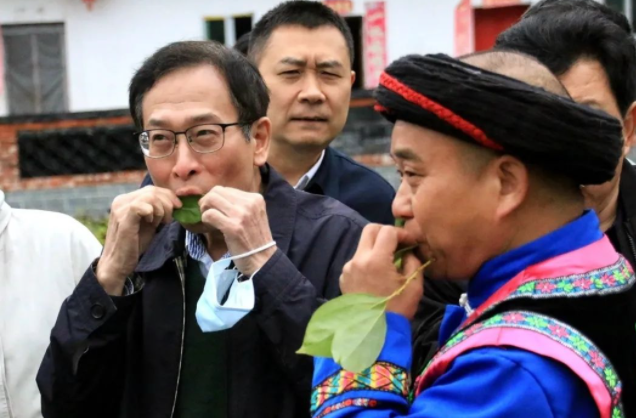
Teach visitors to play the Konoha. Konoha plays a musical instrument that does not require meticulous carving. Just pick a green leaf and put it on the lips to blow a pleasant sound, and the person who plays it is Bai Xiangui, the inheritor of the intangible culture of Konoha.
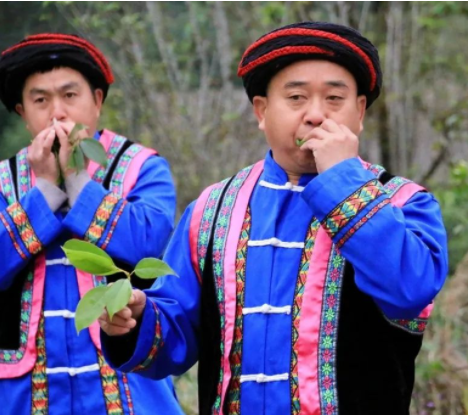
Bai Xiangui was born on the Youshui River in Youchou Town. Influenced by his father and grandfather since childhood, he developed a strong interest in Konoha playing and folk songs. In 1983, Bai Xiangui, who was in junior high school, followed his teacher Tian Jingyi to formally learn Konoha.
Learning Konoha playing is boring and difficult, but Bai Xiangui insisted on sticking to it with his love for Konoha playing.
Nothing is unachievable. From the initial blowing, to the mastery of breath, to the control of rhythm and pitch, to the final emotional injection, Bai Xiangui put a lot of effort and sweat into the process of learning Konoha. After unremitting efforts, in December 2010, he was selected as the municipal-level tree-leaf wind successor of the national intangible cultural heritage protection list "Youyang Folk Song".
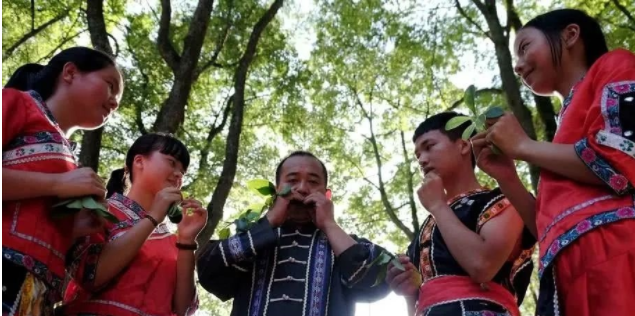
Instruct Konoha playing techniques.
Someone in Youyang would blow the leaves, and the news spread like wildfire, and invitations came one after another. Bai Xiangui not only performed domestically, but also participated in large and small competitions and performances in the UK and Singapore, and played Konoha at home and abroad.
On February 11, 2019, Bai Xiangui was invited to participate in the 2019 Sussex Chinese Students' Association Spring Festival Gala held in Brighton, UK. At the party, Bai Xiangui used Konoha to perform three songs of "My Heart Eternal", "Konoha Love Song" and "I Love You China" for overseas students, overseas Chinese and foreign guests. The audience burst into applause, and Bai Xiangui also received the honorary certificate issued by the organizer.
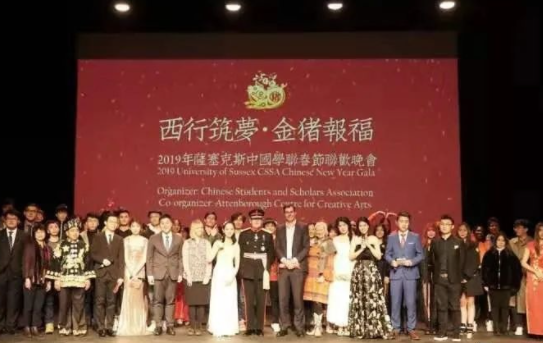
When receiving the certificate, Bai Xiangui said proudly: "This trip to the UK not only confirms my persistence and hard work over the years, but also shows that our intangible culture and ethnic minority traditional culture are fully capable and powerful in standing in the world culture. Forest of Art."
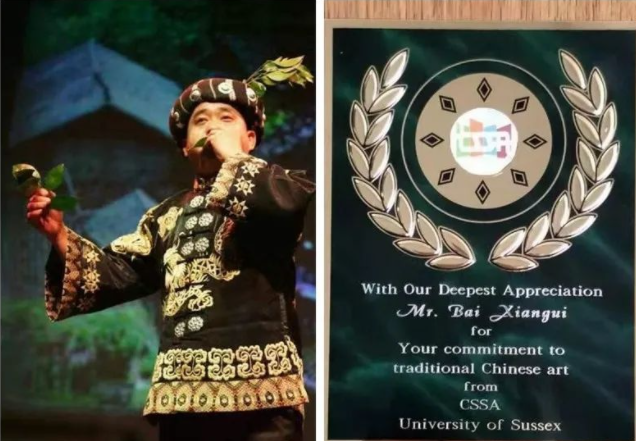
As the inheritor of Konoha playing, Bai Xiangui has always been committed to the inheritance and development of Konoha playing. He has held many training courses for Konoha playing in Youyang County Youth Activity Center, and systematically teaching Konoha playing for free for young people. .
As a member of the County Political Consultative Conference, Bai Xiangui has called on many times to increase the inheritance and protection of intangible cultural heritage, and to introduce intangible cultural heritage and minority traditional culture into the education of primary and secondary schools. Since September 1 this year, after-school delayed service work has been carried out in primary and secondary schools in our county. Based on their own school-running characteristics, each school has carried out a variety of cultural and sports, reading, popular science, interest groups and clubs in the after-school delayed service. Activity. County Minzu Primary School opened Konoha playing courses and hired Bai Xiangui as a teacher.
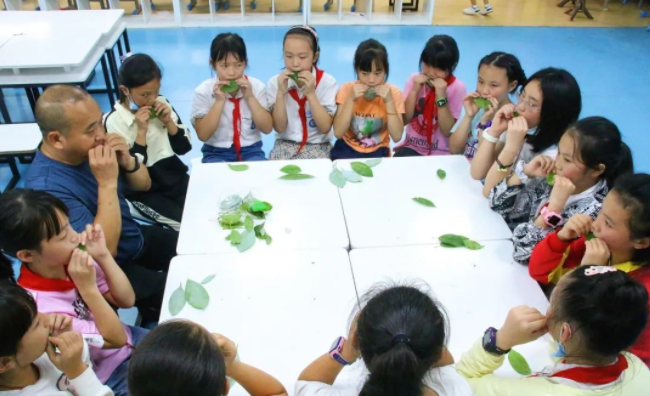
In addition, Youyang has also made every effort to increase publicity efforts, gradually improve the public, especially primary and secondary school students, to understand and understand the Konoha playing technique, and create a good atmosphere for the protection and inheritance of the whole people. However, we must realize that Konoha playing is not passed down by one person or one generation, but by the continuous continuation of generations.
As a Youyang people, we have the responsibility and obligation to better carry forward and inherit the Youyang minority culture, including Konoha playing, and help rural revitalization.
 渝公网安备 50010702504639号
渝公网安备 50010702504639号